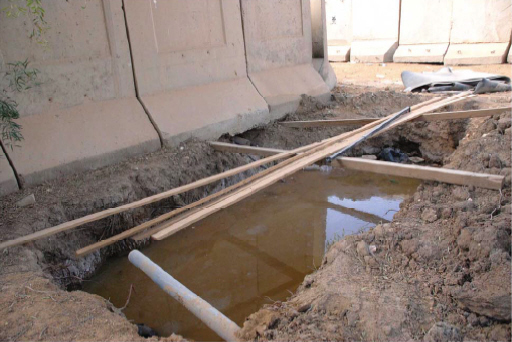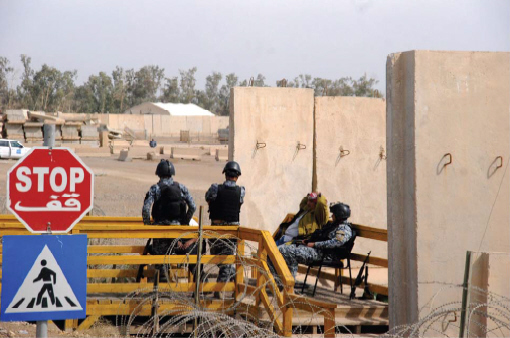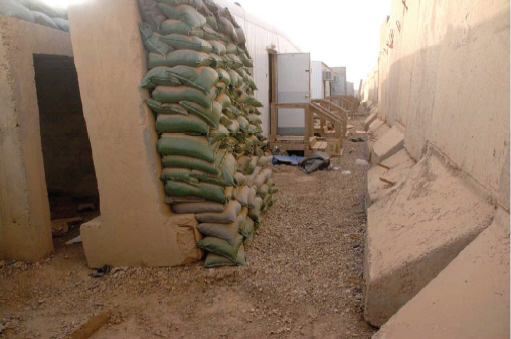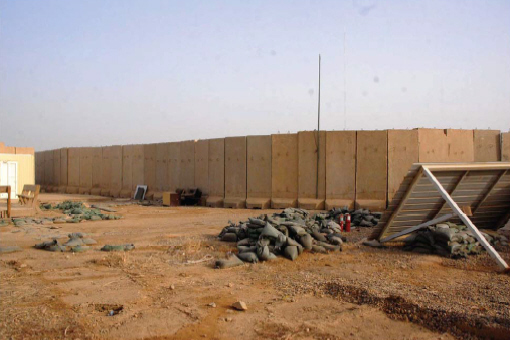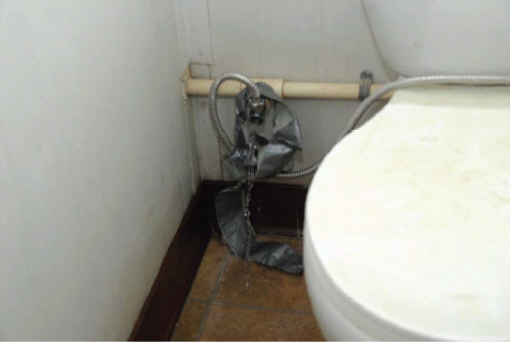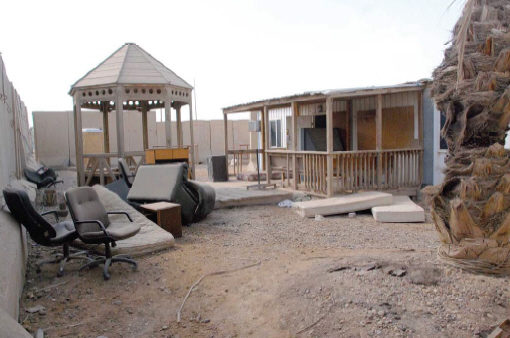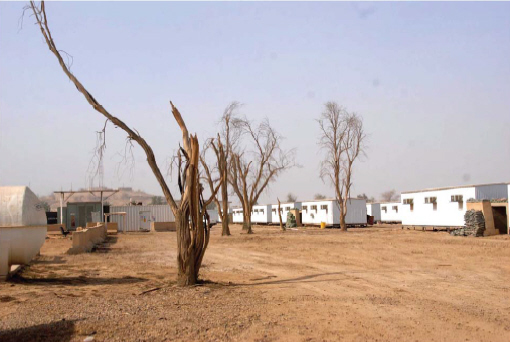THE HUFFINGTON POST
In 1932, the eminent theologian Reinhold Niebuhr wrote “Moral Man and Immoral Society” warning of the tendency of institutions to lose their sense of humanity. How better to explain today’s actions of the US State Department in toying with the lives and hopes of over 3000 Iranian dissidents being “voluntarily” relocated from Camp Ashraf , a small city 40 miles north of Baghdad, where they have lived for the last 25 years? From there they are being moved to a small isolated section of Camp Liberty, an abandoned American base, looted by the Iraqis, with no basic amenities and under the watchful eyes of Iraqi police who have viciously attacked them before.
In the State Department’s view, they are doing these dissidents, members of the MEK (The Mujahedeen-e Khalq), a favor and are not dishonoring a solemn commitment made to them by the US Army in July 2004 when it promised that they would be treated as Protected Persons under the Geneva Conventions in return for the MEK’s surrendering their means of self-protection. But, sad to say, the State Department’s benevolent view is seriously flawed.
In reality, it has, as Niebuhr warned, lost its sense of humanity and has shown instead that US assurances of protection cannot be taken seriously in the face of institutional interests. The US has ceded any rights it may have had as an occupying power to a new Iraqi regime, one which wishes to placate neighboring Iran as the devil it must deal with. Who suffers as a result? In the short run, the MEK, of course; in the long run, the United States.
To be sure, the State Department can rightly claim that it has attempted to soften the blow to which the MEK would otherwise be exposed if its people remained at Camp Ashraf. For there they would be subject to additional lethal attacks by Iraqi forces and perhaps forcible deportation to Iran to face death sentences. Instead, State, working with UN officials, has proposed the “solution” of a so called voluntary transfer to Camp Liberty, where despite sub-standard conditions it would serve as a gateway to Europe and the Americas once the new arrivals are processed as refugees by the UN.
Here is what is wrong with this scenario as provided by recent reports by those on the ground: 400 MEK members who, despite strong skepticism about the plan accepted the offer as a way of testing the good intentions of the State Department, the United Nations and the government of Iraq.
1. Camp Liberty has no serviceable water supply let alone drinking water.
2. The trailers in which new arrivals are to be housed are worn-out and extremely dirty to the point of being un-inhabitable. There are only 80 trailers and most of them lack electrical wiring and thus there is no light and no heating.
3. The sewage system is not functioning and thus the lack of hygienic facilities is likely to cause serious health problems, with raw sewage in open areas of the residential quarters.
4. Contrary to assurances by the Secretary General’s Special Representative for Iraq, Ambassador Kobler, that Camp Liberty meets humanitarian standards – and similar assurances from the State Department on which MEK members relied in accepting relocation there, minimal international humanitarian standards are blatantly absent.
5. The police headquarters is situated northwest of the camp, next to section where the residents are located. In addition there are four other police stations and checkpoints with one situated on the pathway to the dining facility so that every resident going to the dining facility must pass the police checkpoint. More ominously, the police commander in charge of the camp appears to be the same commander responsible for incursions into Camp Ashraf which on two occasions left a total of more than 40 unarmed civilians dead and hundreds wounded. In addition, police are constantly patrolling within the camp on vehicles with heavy machine-guns.
6. Furthermore, the Iraqis have installed seven surveillance cameras all directed on the residential area of the Camp. Those cameras leave absolutely no privacy for anyone.
7. A prison would be much better than Camp Liberty, because in a prison, the prison guards will have to abide by certain rules, and the prisoners have certain rights. In Camp Liberty, the Iraqi policy operation seems to be unbridled.
All of this raises the question of why the State Department would be party to such chicanery, for Camp Liberty gives no sign of being a processing center for resettlement, but more in the nature of a prison where liberty is a dead-letter word. We have only one State Department and would of course like to give it the benefit of the doubt. Certainly, this is what the leadership of the MEK has done. Yet, what credibility does the State Department have with regard to the MEK when it has persisted in keeping it on its FTO (Foreign Terrorist Organizations) List, long after the UK and EU have taken it off its respective lists for lack of any substantiating evidence.
Unfortunately, it appears that Camp Liberty may be but a cruel hoax perpetrated on this group. Surely the State Department is aware that Iraqi Prime Minister Nouri al -Maliki has made his intention perfectly clear: to rid the MEK from Iraqi soil. Problem is no one wants to accept them for relocation so long as they remain on the State Department FTO List. Instead of removing them from this list, the State Department, without any showing of good reason, as called for by the US Court of Appeals in Washington, has refused to delist the MEK. Thus it enables the Iraqi regime to fall back on the canard that the MEK, deemed as a terrorist entity by the United States, deserves whatever treatment the Iraqi government deems fit. Thus, understandings reached about resettlement, whatever they may be, are undermined by the State Department itself.
Apparently, the State Department refusal to budge, despite a US Court of Appeals order in July 2010 to expedite the de-designation review process, is anchored in the fantasy that Iran can be induced to negotiate its nuclear development program if Iran’s key opponents – the MEK – can be kept in shackles.
Aside from questions of the integrity of what the United States says and does – today the MEK, tomorrow who knows who?–there is something about the State Department position which defies logic as well as law. The MEK is the enemy of our enemy, not America’s enemy. It has renounced terrorism. In the face of extreme provocation the MEK has once again shown its commitment to non-violence and exhaustion of all peaceful means to transforming Iran from brutality to humanity, from theocratic autocracy to a semblance of democracy.
Perhaps, against a dismal picture so far, some good will still come of the State Department’s efforts at resettlement at Camp Liberty. This much is certain: if Camp Liberty turns out to be a hoax, there is no reason for anyone ever to believe that the United States will stand up to Iran.
Allan Gerson is the Chairman of AG International Law in Washington D.C. He is presently involved with other attorneys in representing the PMOI/MEK in its efforts to be removed from the State Department List of Foreign Terrorist Organizations.
http://www.huffingtonpost.com/allan-gerson/camp-liberty-a-cruel-hoax_b_1294291.html
